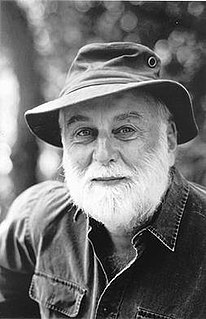A Quote by Orson Scott Card
Everybody walks past a thousand story ideas every day. The good writers are the ones who see five or six of them. Most people don't see any.
Related Quotes
There is this thing called the university, and everybody goes there now. And there are these things called teachers who make students read this book with good ideas or that book with good ideas until that's where we get our ideas. We don't think them; we read them in books. I like Utopian talk, speculation about what our planet should be, anger about what our planet is. I think writers are the most important members of society, not just potentially but actually. Good writers must have and stand by their own ideas.
Frankly, I fail to see how going for a six-month, thousand-mile walk through deserts and mountains can be judged less real than spending six months working eight hours a day, five days a week, in order to earn enough money to be able to come back to a comfortable home in the evening and sit in front of a TV screen and watch the two-dimensional image of some guy talking about a book he has written on a six-month, thousand-mile walk through deserts and mountains.
As for the square at Meknes, where I used to go every day, it's even simpler: I do not see it at all anymore. All that remains is the vague feeling that it was charming, and these five words that are indivisibly bound together: a charming square at Meknes. ... I don't see anything any more: I can search the past in vain, I can only find these scraps of images and I am not sure what they represent, whether they are memories or just fiction.
My vicinity affords many good walks; and though for so many years I have walked almost every day, and sometimes for several days together, I have not yet exhausted them. An absolutely new prospect is a great happiness, and I can still get this any afternoon. Two or three hours' walking will carry me to as strange a country as I ever expect to see.
The story man must see clearly in his own mind how every piece of business will be put over. He should feel every expression, every reaction. He get far enough from his story to take a second look at it... to see whether there is any dead phase... to see whether the personalities are going to be interesting and appealing to the audience. He should also try to see that the things that his characters are doing are of an interesting nature.




































